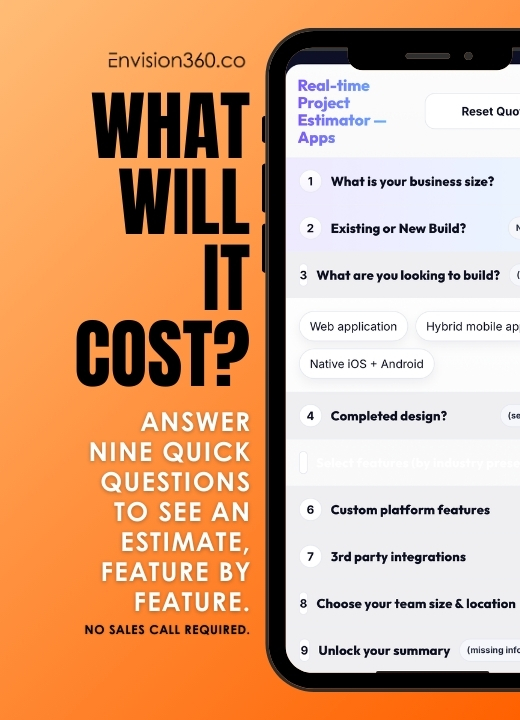Why smaller teams can now out-perform bigger ones
For years, the default lever was headcount: add people to add output. With AI assistants embedded into day-to-day development, the curve bends. In controlled studies, AI pair-programming reduced task times by ~50%+ for scoped coding work—especially scaffolding, refactors, and tests [1]. That shifts cycle time more than it shifts total hours, which is why a fluent team of five can match or surpass a team of ten on well-defined work.
Adoption isn’t fringe anymore: the latest developer surveys show broad, growing use of AI coding tools—useful context when you’re deciding whether to reorganize around smaller pods [2].
What AI takes off the table (and why it matters)
Boilerplate & CRUD
Spinning up data models, endpoints, migrations, and basic UI scaffolds in minutes frees humans to focus on design and correctness rather than syntax [3].
Refactors & quick reviews
Assistants surface simplifications, unused code, and obvious defects, accelerating the “make it cleaner” pass before formal review [3].
Documentation & tests
Generating docstrings, READMEs, and unit-test shells in context increases coverage without the usual drag on velocity; controlled trials report faster completion and improved perceived quality [1].
These wins aren’t just speed; they move low-leverage work off senior people so they can stay on design, risk, and integration.

What humans still own
- System design & trade-offs: where to draw boundaries, choose protocols, and handle failure is still a human decision—AI can propose, but it can’t own consequences.
- Security, privacy & compliance: threat modeling, data residency, auditability, and policy alignment require explicit, accountable choices. Use NIST SSDF practices and the newer gen-AI profile to keep controls in place as code volume rises [4][8].
- Business context: mapping technical choices to outcomes customers actually feel—lead time, reliability, and value delivered—remains a leadership job; research shows AI complements professionals rather than replacing them outright [5].
The lean pod that gets more done (with less rework)
- 1 Tech Lead — architecture, integration strategy, quality gates
- 2–3 Full-stack devs — daily AI usage for code, tests, docs
- 1 QA/Platform engineer — CI/CD, environments, observability
Why it works: fewer handoffs, tighter feedback loops, and measurable delivery using DORA-style metrics (lead time, deploy frequency, change-failure rate, MTTR) [6][7]. These are the signals executives can read weekly.
Where AI helps—and where it doesn’t
Good fits
- Scoped features with known patterns (CRUD + workflow)
- Refactors in mature services
- Test generation and coverage
- Migration helpers (framework bumps, SDK updates)
Use caution
- Novel architecture or critical flows (payments, auth)
- Sensitive data handling and compliance controls
- Areas with unclear requirements (risk of confidently wrong output)
Industry data shows enthusiasm with healthy skepticism: adoption is high, but trust varies, and complex tasks still demand human review. Set expectations accordingly [2].
Guardrails that make smaller pods safe
- Policy & provenance: treat AI output like third-party code: review, scan, and track origin. Align to NIST SSDF controls (source integrity, secrets handling, dependency risk) [4].
- Data boundaries: keep private code and customer data out of public models; use org-scoped tooling and redact logs where required. NIST’s gen-AI profile adds prompts-and-secrets guidance [8].
- Definition of done (with metrics): “Done” includes tests, docs, and observability hooks. Measure impact with the Four Keys—no opinions, just signals [6].
- Human-in-the-loop reviews: AI can assist reviews; it shouldn’t be the only reviewer—especially on auth, infra, or data flows.
Org design: moving from headcount thinking to flow thinking
- Plan in thin slices (2–3 week increments) and release behind flags; prove value early, then widen scope.
- Standardize the toolchain so prompts, snippets, and guardrails are reusable.
- Upskill continuously—the teams that benefit most are the ones that practice with AI every day; field research finds the gains are real but uneven, driven by skills and process, not tools alone [9].
Takeaway
The future isn’t AI vs. developers. It’s developers with AI—smaller, sharper teams that reduce handoffs, keep humans on the hard parts, and turn cycle time into a competitive advantage. The companies that win won’t be the ones with the most people; they’ll be the ones with the clearest flow and the right guardrails.
Want a quick read on your roadmap? We’ll map where AI would (and wouldn’t) speed things up, the controls you’ll need, and what a lean pod would look like for your stack.
References (selected)
- Microsoft / GitHub — Controlled experiment on AI pair programming productivity (55.8% faster). arXiv
- Stack Overflow — Developer Survey 2025/2024: AI adoption & usage. 2025 AI • 2024 AI
- GitHub Blog — Copilot impact on productivity & happiness. Research
- NIST — Secure Software Development Framework (SSDF) v1.1. PDF
- MIT Sloan — Generative AI complements skilled workers; productivity considerations. Article
- Google Cloud — Using the Four Keys to measure DevOps performance. Guide
- DORA 2024 — Accelerate State of DevOps (overview). Summary
- NIST — Generative AI Profile (companion to AI RMF 1.0). PDF
- McKinsey — State of AI 2024: adoption/value signals. Survey
